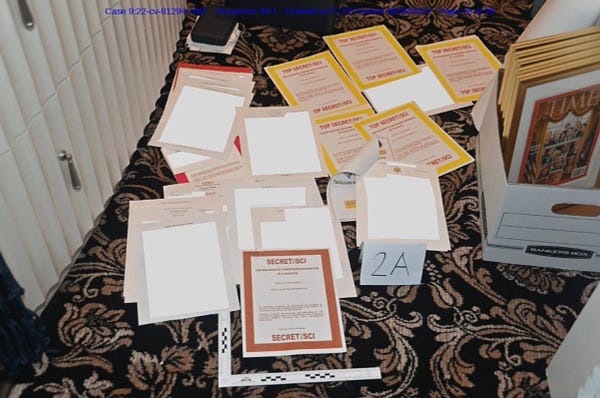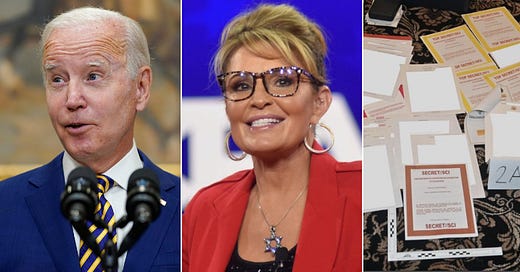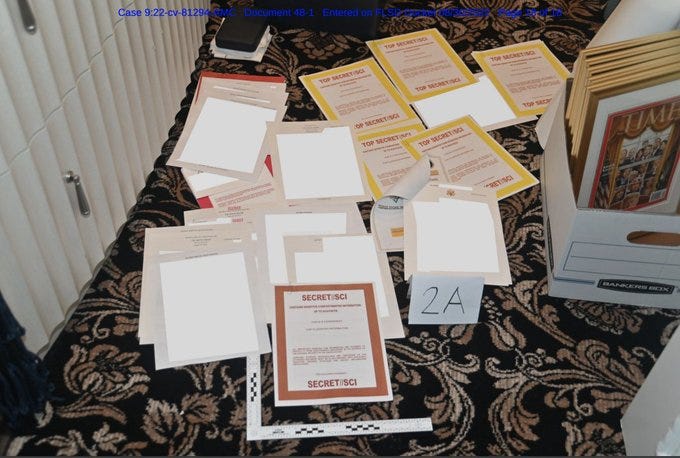
Debt Relief, "Rigged" Elections, and Slob Defamation
A quick look at stories from the past week.
Folks, I’ve had a busy several days on a number of fronts, so instead of doing a deep-dive on any one topic this week, I figured I’d briefly touch on three that have recently taken up space in the news cycle.
Here we go…
The Student Debt Relief Plan
As a small-government conservative who believes in fiscal and personal responsibility (positions now wholly rejected by both major political parties in this country), I think President Biden’s executive policy to transfer hundreds of billions of dollars in student-loan debt — from those who borrowed the money to American taxpayers — is fiscally and morally reprehensible. It’s a ridiculous and glaringly obvious political gift to Biden’s voting base (60% of voters who graduated college and almost 70% of those who went on to graduate-school supported him in 2020), at the expense of those who didn’t receive the benefits of the borrowers’ education.
Not to mention, it’s assuredly illegal.
The legal authority for such an operation belongs to the U.S. Congress, who is being side-stepped in this initiative. Now, as was the case with Biden’s executive action to extend the eviction moratorium, it will be left up to the courts to untangle this mess (sometime after the midterms, of course). And if the courts ultimately shoot down the Student Debt Relief Plan, supporters of the policy won’t blame the guy who brazenly and unethically enacted it in the first place. No, they’ll instead accuse the courts of being “politicized.”
Because that’s how we roll these days.
“Stop Calling American Elections Rigged”
That was a plea Wednesday night from a guy I follow on Twitter, and I wholeheartedly agree with him. His name is Sean, and he was addressing the reaction of Sen. Tom Cotton, R-Ark. to Democratic candidate Mary Peltola’s defeat of two Republican candidates (Sarah Palin and Nick Begich) to win Alaska’s lone U.S. House seat in their state-wide special election.
Here it was:
The senator was referring to the voting system Alaskans chose, two years ago, to implement in their state. I’ve written about, and have advocated for, ranked-choice voting in party primaries, but Alaska now uses it in their general elections… like the one that closed out this week.
(Long-story short: in ranked-choice voting, voters rank balloted candidates from who they prefer the most to who they prefer the least. The results are then tabulated, and the winner is the candidate deemed most mathematically acceptable by voters. It’s a perfectly valid and equitable method for running elections, though the mechanics obviously take longer to explain than that of traditional voting.)
In the case of this specific (special) election, no candidate (of the whopping 50 candidates that initially entered the race) received a majority of “first preference” votes, so a run-off election was launched between the top four hopefuls. One of those candidates withdrew, leaving Peltola, Palin, and Begich.
How, exactly, does Cotton qualify his pretty serious accusation that this system “rigs” elections. He laid out his rationale in a follow-up tweet:

Notice how he put “won” in air-quotes? Charming.
In other words, according to Cotton, the run-off election was “rigged” because the individual candidate whom Alaskans deemed most preferable — through an objectively fair system that a majority of Alaskans voted in support of (and all candidates agreed to run in) — wasn’t a Republican.
It kind of makes you wonder what Cotton’s thoughts are on the electoral college.
More importantly, it would seem to play into a broader, more dangerous theme that’s been mainstreamed in recent years — this notion that if you don’t like the results of an election (and perhaps have an additional beef with perfectly legal campaign efforts that disadvantage your side), the election is “rigged” and therefore illegitimate.
While the negligence of Cotton’s stated position by no means rises to the level of Donald Trump’s “Big Lie” and his efforts to overturn U.S. democracy, or even Laura Loomer’s recent proclamation that she won a House primary election she lost by seven points, it inflicts further needless damage to Americans’ faith in our democratic process.
Far too many politicians and partisan-media figures have lied to or misled Americans on the topic of election integrity. These people have been playing a demonstrably dangerous game, and it’s time — as Sean said — to knock it off.
Cleanliness is Next to Godliness
I’ll end on a lighter, comical note (albeit under a serious topic).
Earlier this week, the Justice Department released a detailed filing related to the Trump investigation. It included the below photograph, which all of you have probably seen at least a dozen times by now, of classified and top secret documents the FBI removed from their search of Mar-a-Lago.
This was a huge and consequential discovery, of course, because Trump denied still having such documents in his possession. In fact, a big part of the FBI’s justification for the Mar-a-Lago search was Trump’s concealment of these documents from the U.S. government.
But amazingly, the real controversy, in certain right-wing-media circles, became the presentation of the photo itself:





You see, folks, the headline wasn’t that Trump improperly took these documents, and refused to turn them over, but that the FBI and DOJ may have left the impression that Trump is a messy guy who didn’t store the improperly held documents in an orderly manner.
Even Trump himself was upset by the perception:
Again, these are documents Trump had previously claimed he didn’t even have… let alone that he stored them in “cartons.”
And it apparently didn’t occur to any of these eagle-eyed observers that if the authorities were truly trying to present the photo as a snapshot of how they found the documents, they probably wouldn’t have included a “2A” evidence sign and a square-ruler providing visual scale.
The Twitter hits were pretty darned entertaining:
Anyway, I hope you all have a great weekend. I’ll be back to the regular shtick next week.
















